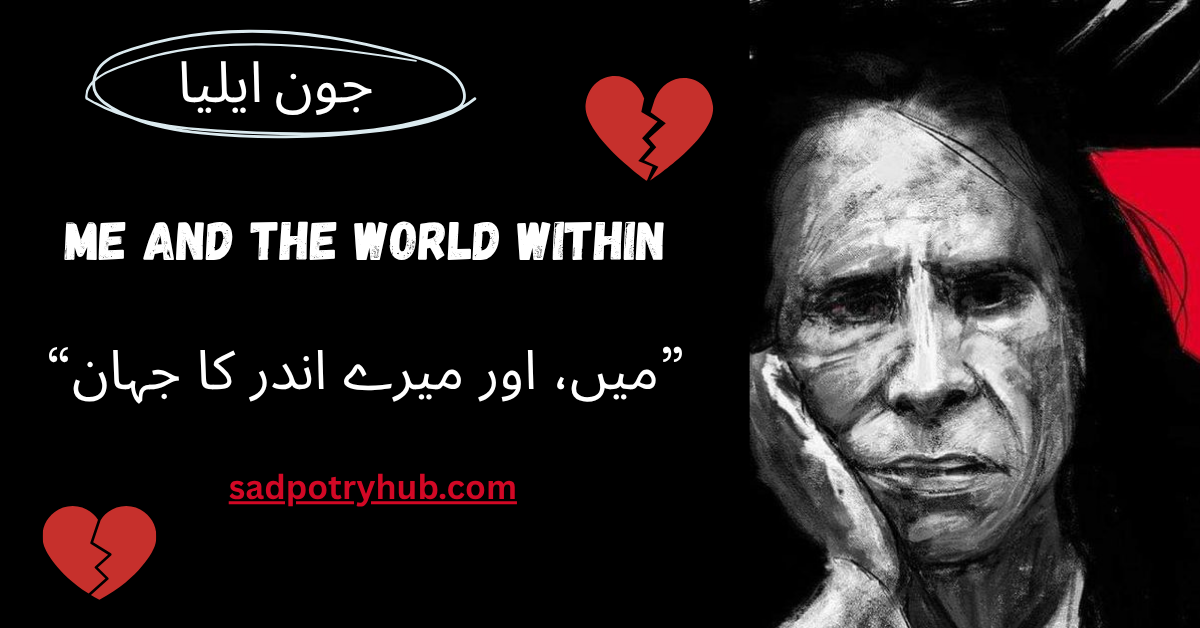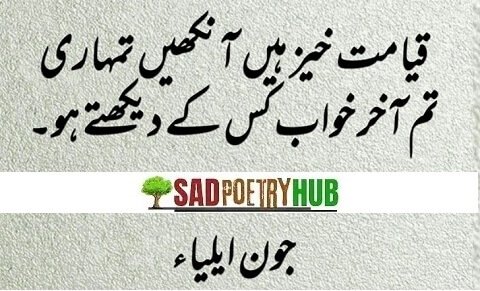Welcome to our sadpoetryhub
(1)
میں، خود سے ناراض
(Me, Angry With Myself)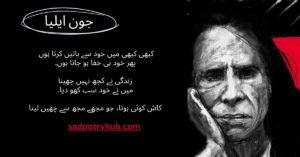
کبھی کبھی میں خود سے باتیں کرتا ہوں،
پھر خود ہی خفا ہو جاتا ہوں۔
زندگی نے کچھ نہیں چھینا،
میں نے خود سب کھو دیا۔
کاش کوئی ہوتا، جو مجھے مجھ سے چھین لیتا۔
Explanation:
The poet expresses deep self-conflict and guilt. He blames no one but himself for his losses, showing how sometimes we become our own destroyers. It reflects Jaun Elia’s classic tone — self-hatred, regret, and longing for escape from one’s own existence.
(2)
تمہاری یاد کا موسم
(The Season of Your Memory)
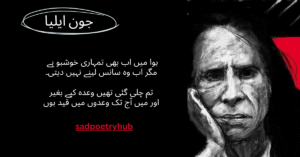
ہوا میں اب بھی تمہاری خوشبو ہے،
مگر اب وہ سانس لینے نہیں دیتی۔
تم چلی گئی تھیں وعدہ کیے بغیر،
اور میں آج تک وعدوں میں قید ہوں۔
Explanation:
This piece captures the suffocating presence of memory. The lover is gone, yet her essence lingers painfully. The poet feels trapped in promises that were never made — a hallmark of Jaun’s themes of unfulfilled love and haunting nostalgia.
(3)
ہم نے مانگا کیا تھا
(What Did We Ask For?)
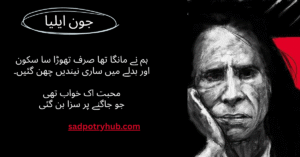
ہم نے مانگا تھا صرف تھوڑا سا سکون،
اور بدلے میں ساری نیندیں چھن گئیں۔
محبت اک خواب تھی،
جو جاگنے پر سزا بن گئی۔
Explanation:
The poet laments how love, which once seemed like a dream, became a punishment upon awakening. He wanted peace but found only sleeplessness. This portrays love as both a gift and a curse — a recurring paradox in Jaun’s philosophy.
(4)
خودکلامی
(Talking to Myself)
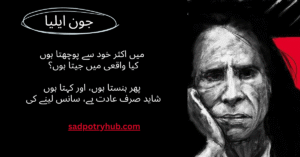
میں اکثر خود سے پوچھتا ہوں —
کیا واقعی میں جیتا ہوں؟
پھر ہنستا ہوں، اور کہتا ہوں —
شاید صرف عادت ہے، سانس لینے کی۔
Explanation:
Here, the poet questions the meaning of life itself. Breathing feels like a habit, not living. This existential despair — a sense of living without purpose — reflects Jaun Elia’s sharp awareness of absurdity and emotional exhaustion.
(5)
تمہارا جانا، میرا ہونا
(Your Leaving, My Becoming)
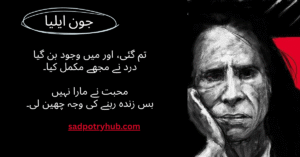
تم گئی، اور میں وجود بن گیا،
درد نے مجھے مکمل کیا۔
محبت نے مارا نہیں،
بس زندہ رہنے کی وجہ چھین لی۔
Explanation:
The poet sees pain as transformation. Losing love didn’t kill him — it redefined him. This poem reveals the paradox of suffering: through heartbreak, he becomes whole. Jaun often viewed pain not as destruction, but as creation.
(6)
ادھورا میں
(Incomplete Me)
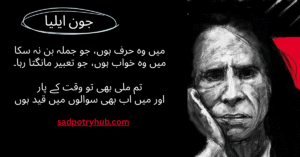
میں وہ حرف ہوں، جو جملہ بن نہ سکا،
میں وہ خواب ہوں، جو تعبیر مانگتا رہا۔
تم ملی بھی تو وقت کے پار،
اور میں اب بھی سوالوں میں قید ہوں۔
Explanation:
An exploration of incompleteness. The poet compares himself to an unfinished word and an unrealized dream. Even reunion doesn’t bring closure. It’s a reflection on how human longing and questions never truly end — a deeply Jaun Elia sentiment.
